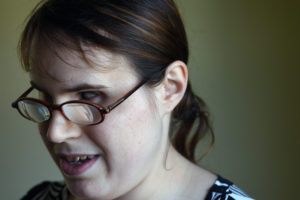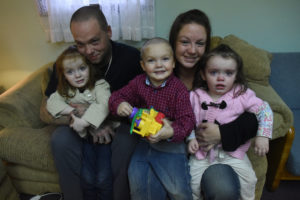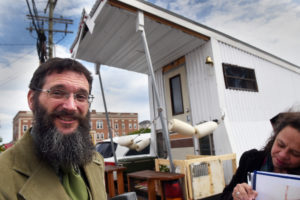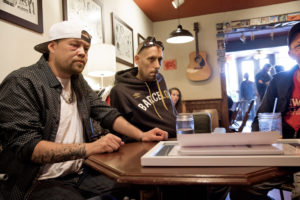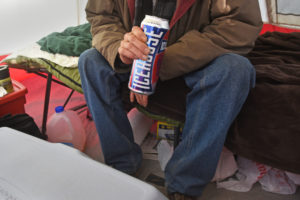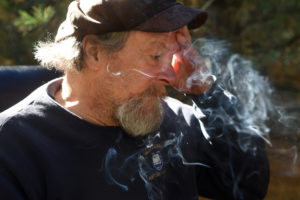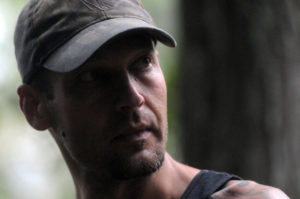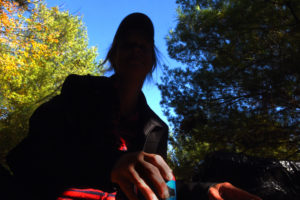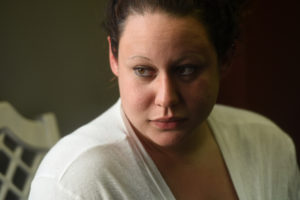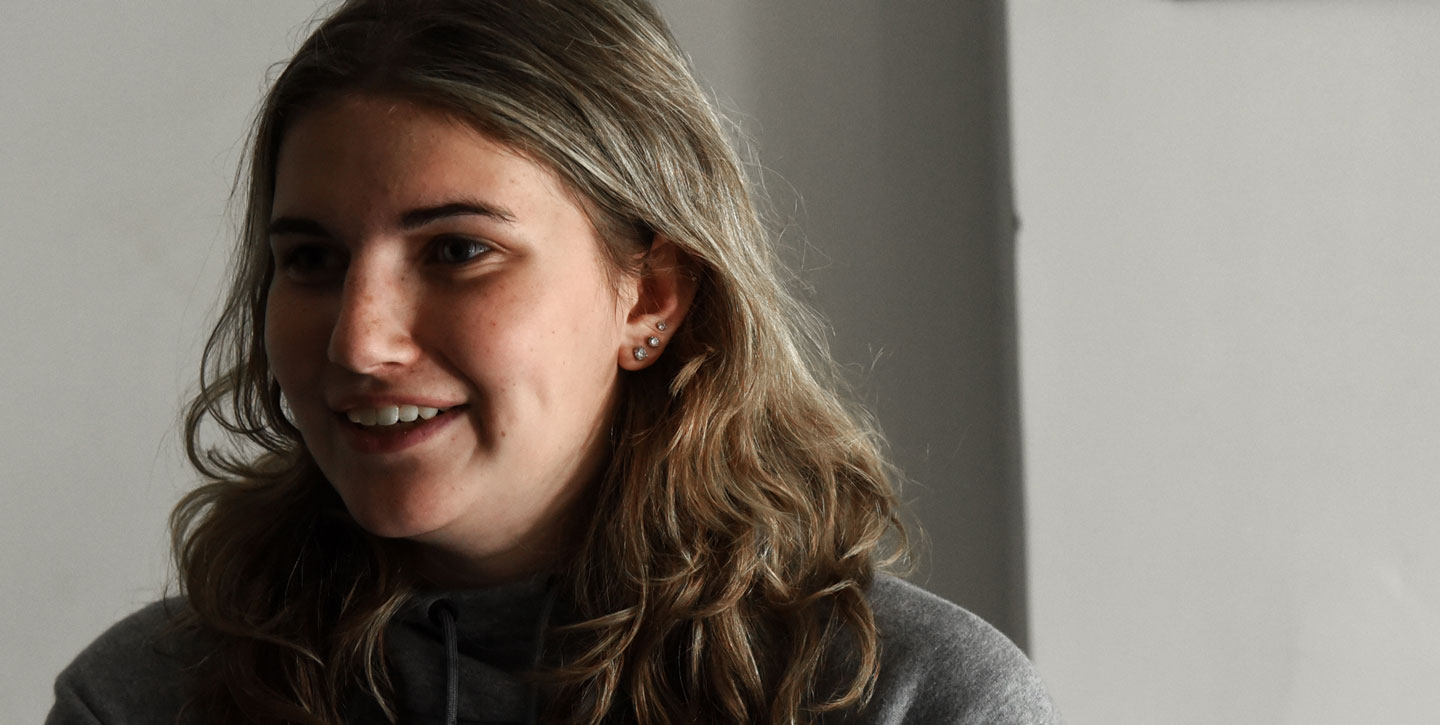
Couch surfing teen finds a way out
NEWTON — If there were one word to describe the lengths to which Abbie Jepson went to avoid detection, she says it would be “exhausting.”
For several months around the summer of 2016, most of Jepson’s energy went into doing everything possible to prevent her mother, a counselor, and father, a Rochester teacher, from discovering their daughter was living out of her car and couch surfing in order to get high.
The lies and sleep deprivation quickly snowballed as she stayed without permission in friends' homes, sneaking out before their parents awoke. She also often snuck back into her own house when she couldn’t find a place to stay after using drugs, getting in and out undetected to avoid answering questions about why she wasn’t at the sleepover she told her parents about earlier.
“It was ridiculously hard,” says Abbie, now 18. “Honestly, (lying to my parents) was probably the worst part. I just felt so bad about it.”
Abbie’s story is different than those of many homeless youth, as she technically never fit any of the state’s definitions of homelessness because her parents never kicked her out of her Hooksett home. While experts say most homeless youth either leave their homes due to trauma, abuse or unstable living situations, or because their parents don’t accept their gender or sexual identities, Abbie is an example of one of the types of youth that homeless data can miss.
“There was always an option to return, but I never did because doing so would be getting in the way of my drug use,” she says. “I was lucky I had a place. A lot of kids aren’t choosing because they have nowhere else to go.”
Abbie started using alcohol and marijuana out of curiosity in eighth grade and from there she says “it just escalated” to the point where she doesn’t remember taking certain drugs because she just “took whatever someone gave me.” Her addiction intensified following major shoulder surgery later in high school, which gave her access to a steady stream of Percocet and Oxycontin.
Coming from a family experienced in substance misuse disorders, Abbie says she knew some of the behaviors and tricks she could use while couch surfing to avoid raising alarm at home, in school and with her closest friends. She lived a double life only known to the individuals with whom she used a variety of drugs. In one life, she was still an outgoing soccer star who spent a lot of time with her lifelong friends and performed well in school at Pinkerton Academy; in the other, she’d trick classmates into doing her homework for her and ping-pong through a secret group of friends, couch surfing one night here and one week there in an unpredictable pattern she concealed using a litany of excuses.
Abbie says her experiences showed her drug and alcohol use was widespread in Pinkerton Academy and on her soccer teams, going undetected possibly due to the fact the school is large and because the signs can often look like fatigue. Some of her use also occurred in the many homes in which her friends’ parents allowed them to drink, thinking it would prevent them from driving drunk, according to Abbie. She says there often was more than just alcohol being consumed in those homes.
“I was living the life,” she says, whose favorite sober activities include urban exploration and hiking. “No homework, no responsibilities — only playing soccer and getting high.”
Her couch surfing ended and her road to recovery began after her mother found alcohol, weed and pills in her room. Following a stint in a specialized Pennsylvania rehab, Abbie enrolled in Northshore Recovery High School, a fully accredited Beverly, Massachusetts, high school structured around recovery.
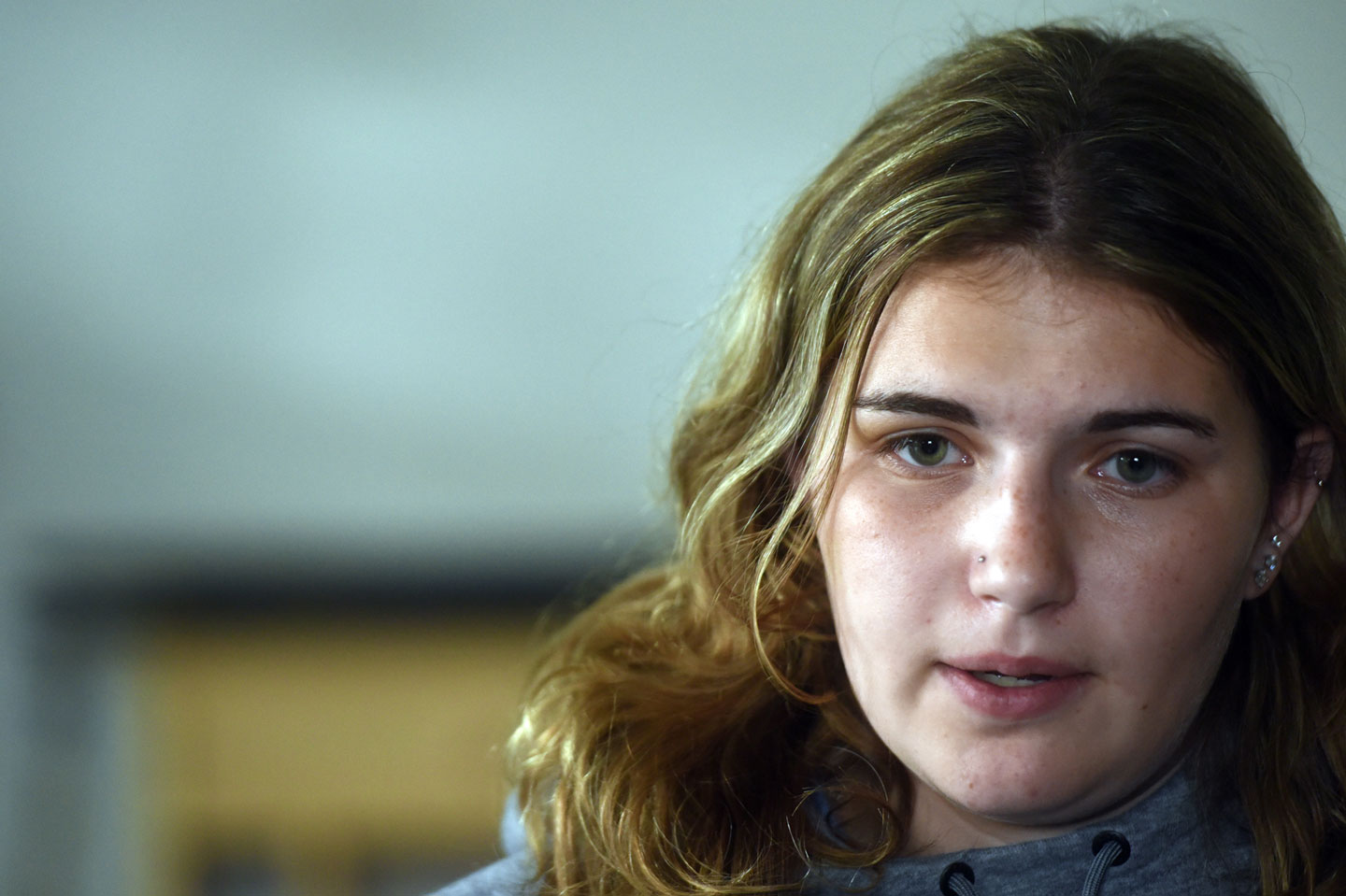
A commute like that would be impossible for most students, although Abbie says her father pulled some strings until she got a car; on his way to work in Rochester, Abbie’s father would drive her to Dover, where Northshore’s principal, Dover City Councilor Michelle Muffet-Lipinski, would take her the rest of the way.
Abbie now works as a peer leader with Live Free Recovery, a nonprofit agency that runs teen intensive outpatient programs in Rochester and Newton and provides recovery services within the Dover and Farmington school districts. Live Free Recovery owner Bob Faghan says Abbie excels in that role, which allows her to continue to work through her own recovery as well as use her story to connect with other participants, some of whom have also experienced homelessness.
Abbie says the compassion she’s received along the way has been invaluable and helped her decide what she wants to do in life.
“I want to open my own recovery school because that school saved my life. There are no schools like that in New Hampshire,” says Abbie, adding it “kills” her that the model doesn’t exist in the Granite State despite the success of the model and the attention to the Granite State’s opioid crisis. “Alternative and adult programs aren’t the same. Every state should have at least a few recovery schools.”
